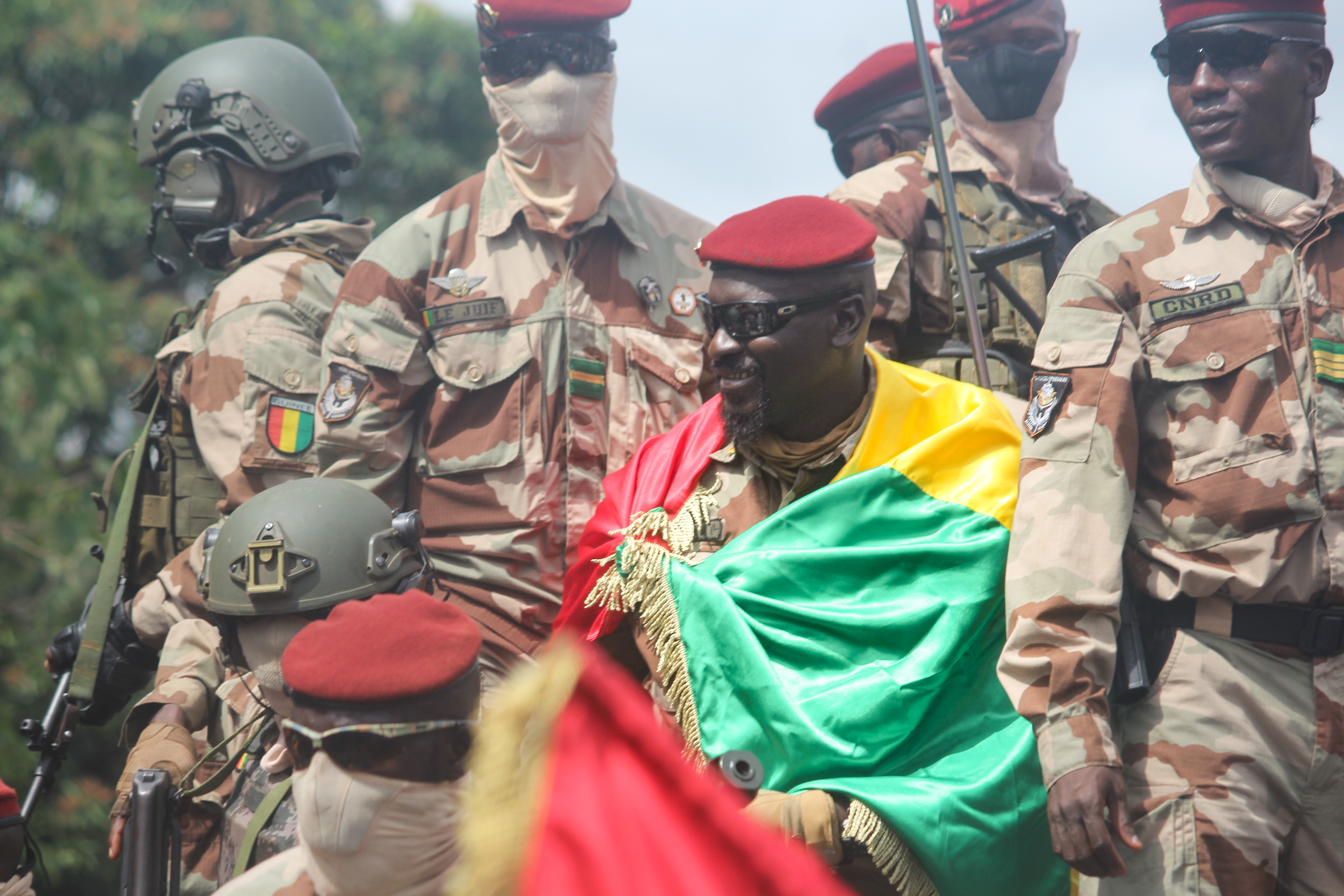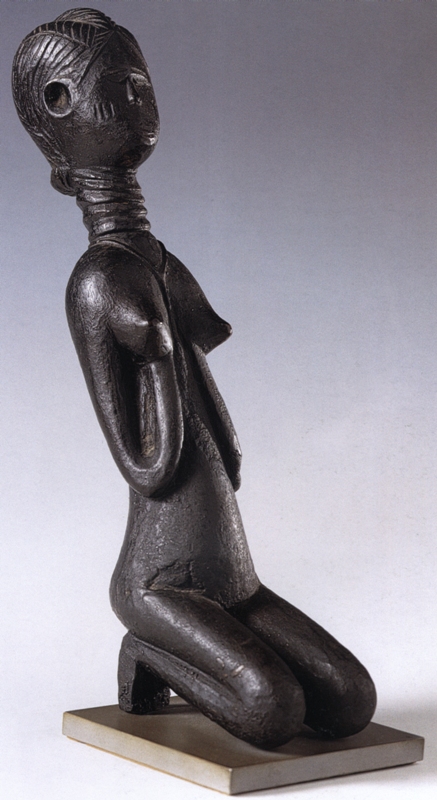|
Guinea
Guinea, officially the Republic of Guinea, is a coastal country in West Africa. It borders the Atlantic Ocean to the west, Guinea-Bissau to the northwest, Senegal to the north, Mali to the northeast, Côte d'Ivoire to the southeast, and Sierra Leone and Liberia to the south. It is sometimes referred to as Guinea-Conakry, after its capital Conakry, to distinguish it from other territories in the Guinea (region), eponymous region, such as Guinea-Bissau and Equatorial Guinea. Guinea has a population of 14 million and an area of . Formerly French Guinea, it achieved independence in 1958. Guinea has a history of military coup d'état, coups d'état.Nicholas Bariyo & Benoit FauconMilitary Faction Stages Coup in Mineral-Rich Guinea ''Wall Street Journal'' (5 September 2021).Krista LarsonEXPLAINER: Why is history repeating itself in Guinea's coup? Associated Press (7 September 2021).Danielle PaquettHere's what we know about the unfolding coup in Guinea ''Washington Post'' (6 Septembe ... [...More Info...] [...Related Items...] OR: [Wikipedia] [Google] [Baidu] [Amazon] |
2021 Guinean Coup D'état
On 5 September 2021, President of Guinea Alpha Condé was captured by Republic of Guinea Armed Forces, the country's armed forces in a coup d'état after gunfire in the capital, Conakry. Special forces commander Mamady Doumbouya released a broadcast on state television announcing the dissolution of the Constitution of Guinea, constitution and government. After several decades of authoritarian rule in Guinea, Condé was the country's first democratically elected leader. During his time in office, Guinea used its rich natural resources to improve the economy, but the bulk of the country's population has not felt its effects. In 2020, Condé changed the constitution 2020 Guinean constitutional referendum, by referendum to allow himself to secure a third term, a controversial change which spurred the 2019–2020 Guinean protests. During the last year of the second term and his third term, Condé cracked down on protests and on opposition candidates, some of which died in prison, whi ... [...More Info...] [...Related Items...] OR: [Wikipedia] [Google] [Baidu] [Amazon] |
Susu People
The Susu or Soussou people are a Mande-speaking ethnic group living primarily in Guinea and northwestern Sierra Leone, particularly in Kambia District.Susu people Encyclopædia Britannica Influential in Guinea, smaller communities of Susu people are also found in the neighboring and . The Susu are a patrilineal society, predominantly Muslim, who favor endogamous cross-cousin marriages with polygynous households. They have a caste system like all Manding-speaking peoples of West Africa. The artisans such as smiths, carpenters, musician ... [...More Info...] [...Related Items...] OR: [Wikipedia] [Google] [Baidu] [Amazon] |
Mandinka People
The Mandinka or Malinke are a West African ethnic group primarily found in southern Mali, The Gambia, southern Senegal and eastern Guinea. Numbering about 11 million, they are the largest subgroup of the Mandé peoples and one of the List of ethnic groups of Africa, largest ethnolinguistic groups in Africa. They speak the Manding languages in the Mande language family, which are a ''lingua franca'' in much of West Africa. They are predominantly Subsistence agriculture, subsistence farmers and live in rural villages. Their largest urban center is Bamako, the capital of Mali. The Mandinka are the descendants of the Mali Empire, which rose to power in the 13th century under the rule of king Sundiata Keita, who founded an empire that would go on to span a large part of West Africa. They migrated west from the Niger River in search of better agricultural lands and more opportunities for conquest. Nowadays, the Mandinka inhabit the West Sudanian savanna region extending from The Gambia ... [...More Info...] [...Related Items...] OR: [Wikipedia] [Google] [Baidu] [Amazon] |
Conakry
Conakry ( , ; ; ; ) is the Capital city, capital and largest city of Guinea. A port city, it serves as the economic, financial and cultural centre of Guinea. Its population as of the 2014 Guinea census was 1,660,973. The current population of Conakry is difficult to ascertain, although the U.S. Department of State's Bureau of African Affairs has estimated it at two million, accounting for one-sixth of the entire population of the country. History Conakry was originally settled on the small Tombo Island and later spread to the neighboring Kaloum Peninsula, a stretch of land wide. The city was essentially founded after Britain ceded the island to France in 1887. In 1885, the two island villages of Conakry and Boubinet had fewer than 500 inhabitants. Conakry became the capital of French Guinea in 1904, and prospered as an export port, particularly after a railway (now closed) to Kankan opened up the interior of the country for the large-scale export of peanut, groundnut. In ... [...More Info...] [...Related Items...] OR: [Wikipedia] [Google] [Baidu] [Amazon] |
Mamady Doumbouya
Mamady Doumbouya (N'Ko: , born 5 December 1980) is a Guinean military officer serving as the current president of Guinea since 5 September 2021. Doumbouya led a coup d'état on 5 September 2021 that overthrew the previous president, Alpha Condé. He is a member of the Special Forces Group of the Guinean military and a former French legionnaire. On the day of the coup, Doumbouya issued a broadcast on state television declaring that his faction had dissolved the government and constitution. On 1 October 2021, Doumbouya was sworn in as interim president. At the head of the military junta that seized power following the coup d'état, he is responsible for the disappearances of human rights activists, such as Foniké Menguè, and journalists, such as Habib Habib Marouane Camara Early life Doumbouya was born on 5 December 1980 in the Kankan Region of Guinea. He is of Mandinka origins. Military career Doumbouya was a French legionnaire holding the rank of corporal befor ... [...More Info...] [...Related Items...] OR: [Wikipedia] [Google] [Baidu] [Amazon] |
List Of Presidents Of Guinea
This article lists the presidents of Guinea, since the country gained independence from France in 1958 (after rejecting to join the French Community in a constitutional referendum). Term limits As of 2021, there is a two-term limit for the president in the Constitution of Guinea. This limit has been lifted for Conté in 2001 and for Condé in 2020. List of officeholders ;Political parties ;Other factions ;Status ;Symbols Elected unopposed Died in office Notes Timeline Latest election See also * Politics of Guinea * List of prime ministers of Guinea * List of colonial governors of French Guinea References External links ; Government Official site of the Guinean government {{Heads of state and government of Africa * [...More Info...] [...Related Items...] OR: [Wikipedia] [Google] [Baidu] [Amazon] |
List Of Prime Ministers Of Guinea
This article lists the prime ministers of Guinea, since the establishment of the office of Prime Minister in 1972. List of officeholders ;Political parties ;Other factions Notes Timeline See also * Politics of Guinea * List of presidents of Guinea * List of colonial governors of French Guinea External links ; Government *Official site of the Guinean government {{Prime Minister Prime ministers of Guinea, * Lists of prime ministers by country, Guinea Guinea politics-related lists, Prime Ministers 1972 establishments in Guinea ... [...More Info...] [...Related Items...] OR: [Wikipedia] [Google] [Baidu] [Amazon] |
National Assembly (Guinea)
The unicameral ''Assemblée nationale'' or National Assembly is Guinea's legislative body. Since the country's birth in 1958, it has experienced political turmoil, and elections have been called at irregular intervals, and only since 1995 have they been more than approval of a one-party state's slate of candidates. The number of seats has also fluctuated. It is currently suspended, with the National Council of the Transition acting as Guinea's legislative body in the wake of the 2021 Guinean coup d'état. Organisation Two thirds of the members (76), called ''députés'', are directly elected through a system of proportional representation, using national party-lists, while one third (38) are elected from single-member constituencies, using the simple majority (or first-past-the-post) system. Members must be over 25 years old and serve five-year terms. The President of the National Assembly of Guinea is the presiding officer of the legislature. Claude Kory Kondiano has been ... [...More Info...] [...Related Items...] OR: [Wikipedia] [Google] [Baidu] [Amazon] |
Fula People
The Fula, Fulani, or Fulɓe people are an ethnic group in Sahara, Sahel and West Africa, widely dispersed across the region. Inhabiting many countries, they live mainly in West Africa and northern parts of Central Africa, South Sudan, Darfur, and regions near the Red Sea coast in Sudan. The approximate number of Fula people is unknown, due to clashing definitions regarding Fula ethnicity. Various estimates put the figure between 25 and 40 million people worldwide. A significant proportion of the Fula – a third, or an estimated 7 to 10 million – are pastoralism, pastoralists, and their ethnic group has the largest nomadic pastoral community in the world., Quote: The Fulani form the largest pastoral nomadic group in the world. The Bororo'en are noted for the size of their cattle herds. In addition to fully nomadic groups, however, there are also semisedentary Fulani – Fulbe Laddi – who also farm, although they argue that they do so out of necessity, not choice. The major ... [...More Info...] [...Related Items...] OR: [Wikipedia] [Google] [Baidu] [Amazon] |
Kpelle People
The Kpelle people (also known as the ''Guerze, Kpwesi, Kpessi, Sprd, Mpessi, Berlu, Gbelle, Bere, Gizima,'' or ''Buni'') are the largest ethnic group in Liberia. They are located primarily in an area of central Liberia, extending into Guinea. They speak the Kpelle language, which belongs to the Mande language family. Despite their yearly heavy rainfalls and rough land, Kpelle survive mostly on their staple crop of rice. Traditionally organized under several paramount chiefs who serve as mediators for the public, preserve order and settle disputes, the Kpelle are arguably the most rural and conservative of the major ethnic groups in Liberia. The Kpelle people are also referred to as Gberese, Gbese, Gbeze, Gerse, Gerze, Kpelli, Kpese, Kpwele, Ngere, and Nguere. History The Kpelle or Guerze lived in North Sudan during the sixteenth-century, before fleeing to other parts of Northwest Africa into what is now Mali. Their flight was due to internal conflicts between the tribes fr ... [...More Info...] [...Related Items...] OR: [Wikipedia] [Google] [Baidu] [Amazon] |
French Guinea
French Guinea () was a French colonial possession in West Africa. Its borders, while changed over time, were in 1958 those of the current independent nation of Guinea. French Guinea was established by France in 1891, within the same borders as its previous colony known as Rivières du Sud (1882–1891). Prior to 1882, the coastal portions of French Guinea were part of the French colony of Senegal. In 1891, Rivières du Sud was placed under the colonial lieutenant governor at Dakar, who had authority over the French coastal regions east to Porto-Novo (modern Benin). In 1894 Rivières du Sud, Côte d'Ivoire and Dahomey were separated into 'independent' colonies, with Rivières du Sud being renamed as the Colony of French Guinea. In 1895, French Guinea was made one of several dependent colonies and its Governor became one of several Lieutenant Governors who reported to a Governor-General in Dakar. In 1904, this federation of colonies was formalised as French West Africa. French G ... [...More Info...] [...Related Items...] OR: [Wikipedia] [Google] [Baidu] [Amazon] |






